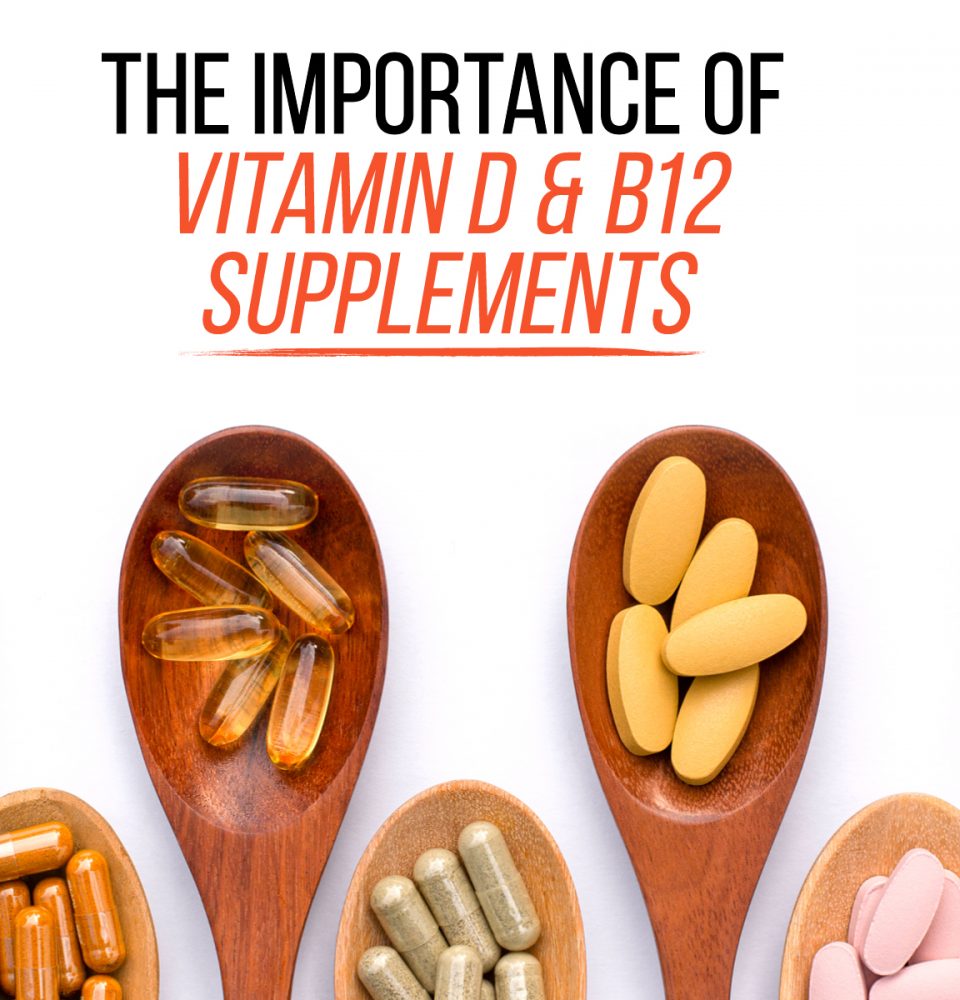Benefits of Taking Vitamin D and B12 Together
Vitamin D and B12 are essential nutrients that play important roles in maintaining overall health and well-being. While they have individual benefits, taking these two vitamins together can provide even greater advantages. In this article, we will explore the benefits of combining vitamin D and B12 supplementation and how it can positively impact your health.
Enhanced Energy Levels
One of the key benefits of taking vitamin D and B12 together is the boost in energy levels. Vitamin B12 helps in the production of red blood cells, which carry oxygen throughout the body. Vitamin D, on the other hand, promotes calcium absorption, which is crucial for muscle function and energy production. By combining these two vitamins, you can experience increased energy levels and combat fatigue effectively.
Improved Mood and Mental Health
Vitamin D and B12 also play a significant role in maintaining mental health and improving mood. Vitamin B12 aids in the production of neurotransmitters that regulate mood, such as serotonin and dopamine. Vitamin D, on the other hand, has been linked to the production of serotonin, often referred to as the “feel-good” hormone. By taking these vitamins together, you can potentially alleviate symptoms of depression, and anxiety, and improve overall mental well-being.
Stronger Immune System
Both vitamin D and B12 contribute to a stronger immune system, and when taken together, their benefits are amplified. Vitamin B12 helps in the production of white blood cells, which are crucial for fighting off infections and diseases. Vitamin D, on the other hand, plays a vital role in modulating the immune response and reducing inflammation. By combining these two vitamins, you can enhance your immune system’s ability to defend against illnesses and maintain optimal health.
Improved Bone Health
Vitamin D is well-known for its role in promoting healthy bones. It aids in calcium absorption, which is essential for maintaining strong bones and preventing conditions such as osteoporosis. Vitamin B12, although not directly involved in bone health, indirectly contributes to it by supporting the production of red blood cells, which deliver oxygen and nutrients to the bones. By taking vitamin D and B12 together, you can ensure better overall bone health and reduce the risk of fractures and bone-related diseases.
Enhanced Cognitive Function
Another remarkable benefit of combining vitamin D and B12 is the potential improvement in cognitive function. Vitamin B12 is involved in the synthesis of myelin, a protective sheath around nerve fibers that facilitates efficient communication between brain cells. Vitamin D, on the other hand, has been linked to cognitive health and reducing the risk of cognitive decline. By supplementing with these two vitamins together, you can potentially enhance memory, concentration, and overall cognitive abilities.

Taking vitamin D and B12 together can provide numerous benefits for your overall health and well-being. From increased energy levels to improved mood, stronger immune system, better bone health, and enhanced cognitive function, these vitamins work synergistically to support various aspects of your body’s functioning. However, it is important to consult with a healthcare professional before starting any new supplementation regimen to ensure it aligns with your specific needs and medical history.
Frequently Asked Questions about the Benefits of Taking Vitamin D and B12 Together
1. What are the benefits of taking vitamin D and B12 together?
Taking vitamin D and B12 together can help improve mood, boost energy levels, support a healthy immune system, and promote bone health.
2. How do vitamin D and B12 work together?
Vitamin D helps the body absorb calcium, which is essential for bone health, while vitamin B12 aids in the production of red blood cells and supports nerve function. Taking them together can enhance their benefits.
3. Can taking vitamin D and B12 together improve cognitive function?
Yes, studies have shown that adequate levels of vitamin D and B12 can support brain health and improve cognitive function, including memory and concentration.
4. Are there any benefits for the immune system?
Absolutely! Both vitamin D and B12 play a crucial role in supporting a healthy immune system, helping to fight off infections and reduce the risk of autoimmune diseases.
5. Can taking vitamin D and B12 together help with fatigue?
Yes, as vitamin D and B12 are involved in energy production, their combination can help combat fatigue and boost energy levels.
6. Are there any benefits for bone health?
Definitely! Vitamin D promotes calcium absorption, which is essential for maintaining strong and healthy bones. Vitamin B12 also aids in bone cell formation and can reduce the risk of osteoporosis.
7. Can vitamin D and B12 together support heart health?
While both vitamin D and B12 have been associated with heart health benefits individually, there is limited evidence to suggest that taking them together specifically improves heart health.
8. Are there any interactions or side effects when taking vitamin D and B12 together?
When taken within recommended doses, vitamin D and B12 are generally safe and well-tolerated. However, it’s always advisable to consult with a healthcare professional before starting any new supplement regimen.
9. Can vitamin D and B12 together help with depression?
Studies have shown a link between low levels of vitamin D and B12 and depressive symptoms. While supplementation may be beneficial, it’s important to consult with a healthcare professional for proper diagnosis and treatment.
10. Can I get enough vitamin D and B12 through diet alone?
It can be challenging to obtain sufficient amounts of vitamin D and B12 through diet alone, especially for individuals with limited sun exposure or specific dietary restrictions. In such cases, supplementation may be necessary to ensure optimal levels.




